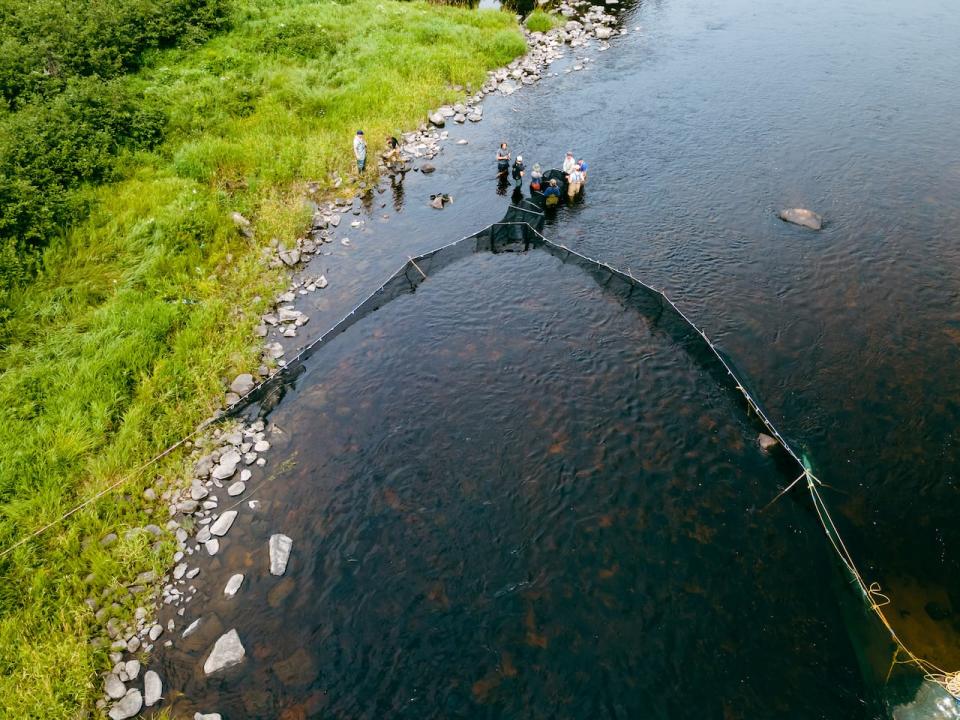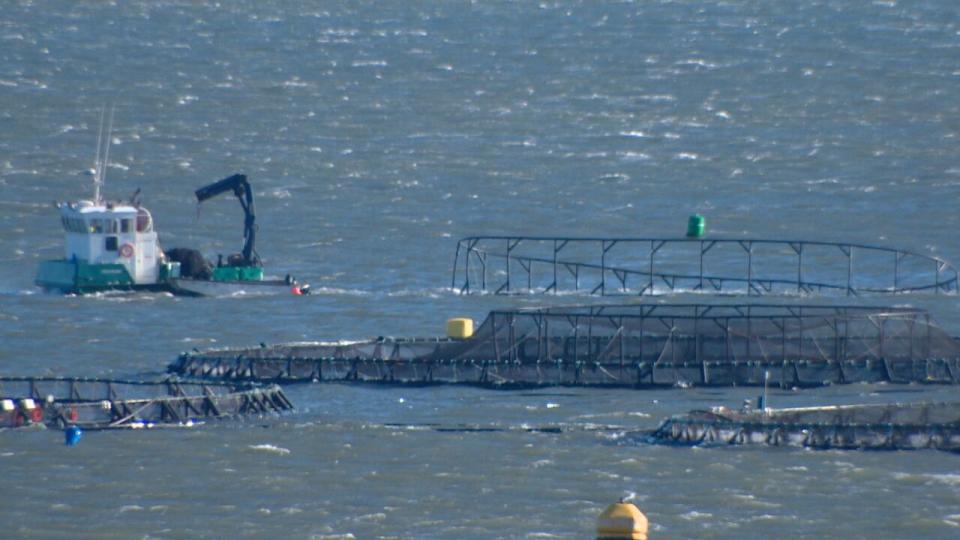Notice of N.B. fish farm escape in December came too late, says conservation group

About 300 fish escaped from a fish farm after a storm in December, according to information made public almost four weeks after it happened —a delay that at least one conservation group says is a problem.
On Dec. 18, New Brunswick was hit with heavy rain and winds of 90 to 100 kilometres per hour in parts of the province that left more than 100,000 customers without power at its peak.
According to the provincial Department of Agriculture, Aquaculture and Fisheries, the fish escaped from sites from Beaver Harbour to past Point Lepreau.
The Atlantic Salmon Federation said the information was made public several weeks after the escape — too late to do anything about it.

When farmed fish escapes happen, conservation groups use a technique where they set up seine nets to force fish into a live trap, says Atlantic Salmon Federation spokesperson Neville Crabbe. (Submitted by Neville Crabbe)
Federation spokesperson Neville Crabbe said, "If there's a window to take any action to recover those fish and prevent them from entering rivers where wild salmon and other wild fish are living, it has to be as soon as possible after the escape."
Crabbe said recapturing escaped fish, once they enter a nearby river, is done by using a seine net with conservation workers walking downstream forcing the fish into a "live trap" at the base of the net.
Fish are then examined by biologists with wild fish being released. Crabbe says it's necessary this happens before fish disperse too far.
When an aquaculture site makes an initial report to the province on escaped fish, the number from that report is added to a publicly available registry.
The findings of the initial report often takes roughly 20 days to become available to the public on the registry.
Department Aquaculture spokesperson Nick Brown said this "allows staff the necessary time to be able to conduct a full evaluation." He did not say when an initial report was made for this escape.
The sites registry does not name specific aquaculture farming companies where escapes have occurred, other than to name the"aquaculture management" area involved. In this case it was management area 3a.
According to a marine finfish sites registry, it appears those that operate within this area belong to Kelly Cove Salmon, the Canadian salmon-farming division of Cooke Aquaculture.

A Cooke Aquaculture fish-farm site in Pocologan after the December storm. CBC contacted Joel Richardson at Cooke to find out if the escaped fish were from their operation. (Roger Cosman/CBC)
CBC contacted Joel Richardson at Cooke Aquaculture to find out if the fish were from their operation. On Dec. 21, Richardson said in an email that while a few of the company's marine farm sites were damaged by the storm, it was unknown if any fish escaped at the time "due to water turbidity conditions."
Contacted again this week and asked if he could provide any more information, he said, "We raise native Atlantic salmon in our farms. I have no additional comments to add."
Some scientists differ on the threat from farmed salmon that escape into the wild.
Susan Farquharson, executive director of the Atlantic Canada Fish Farmers Association, said in a statement, "Escapes have become rare in recent years."
"A small number of fish escapes have been reported. These have been due to predator attacks, weather events or human error when fish are being handled such as during harvesting or fish health inspections."
CBC News contacted the Department of Fisheries and Oceans for comment. The department said it was still working on a statement by publication time.


